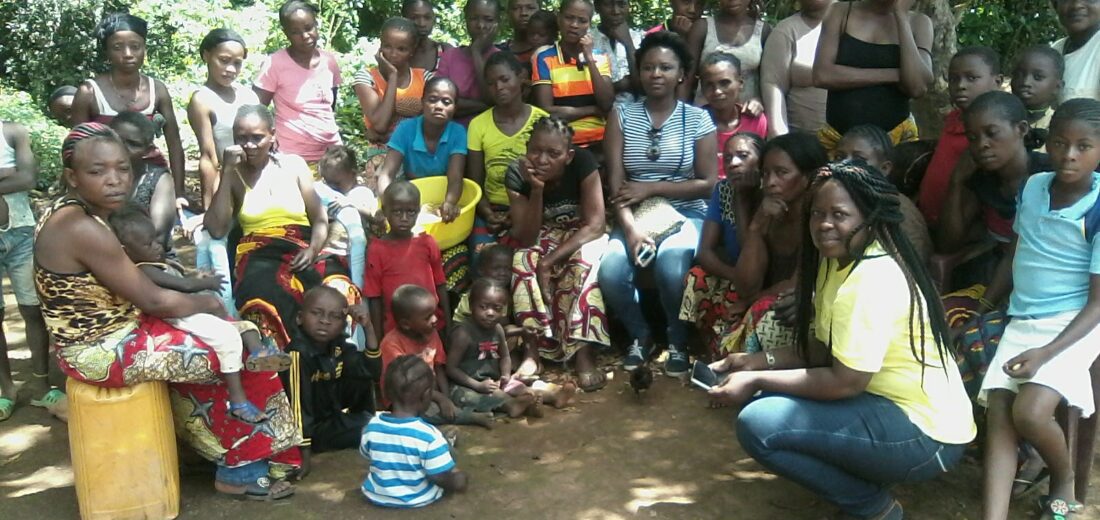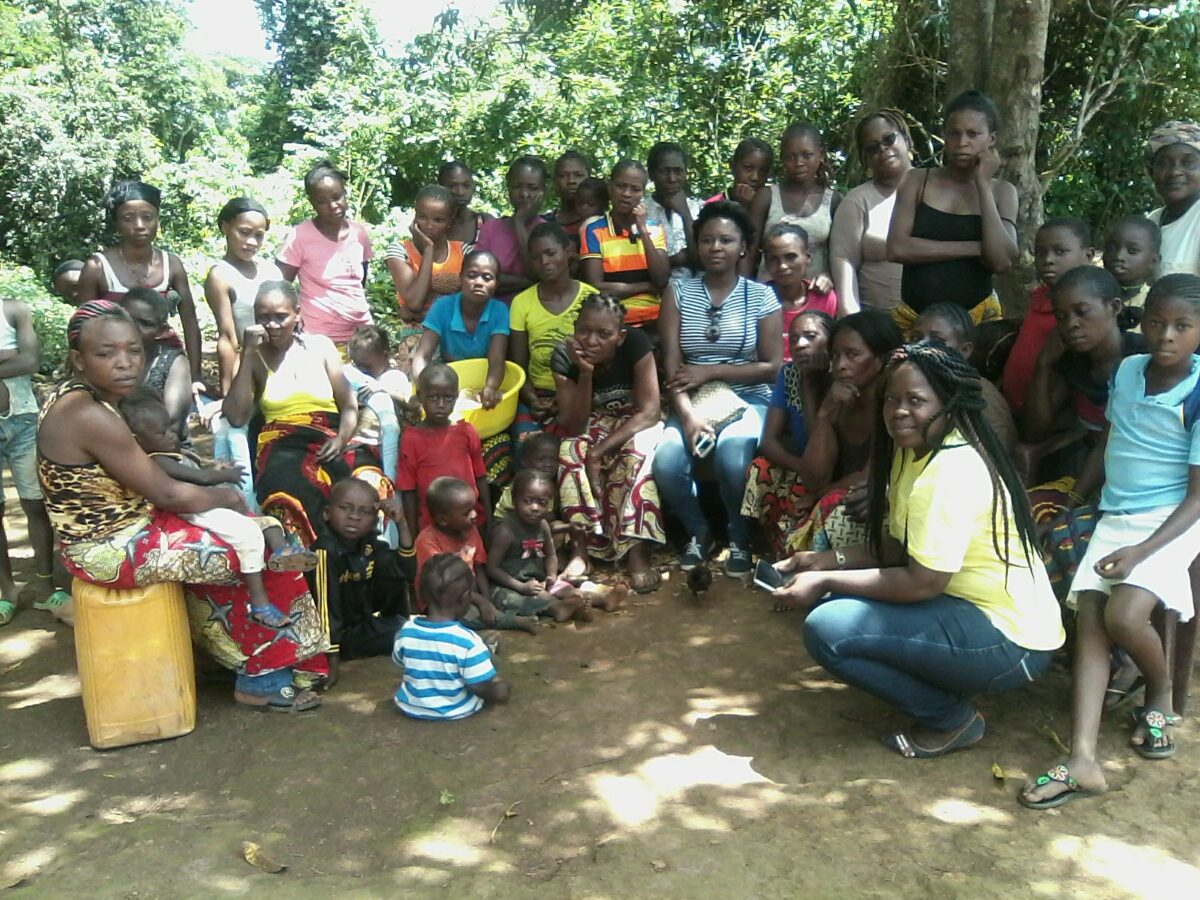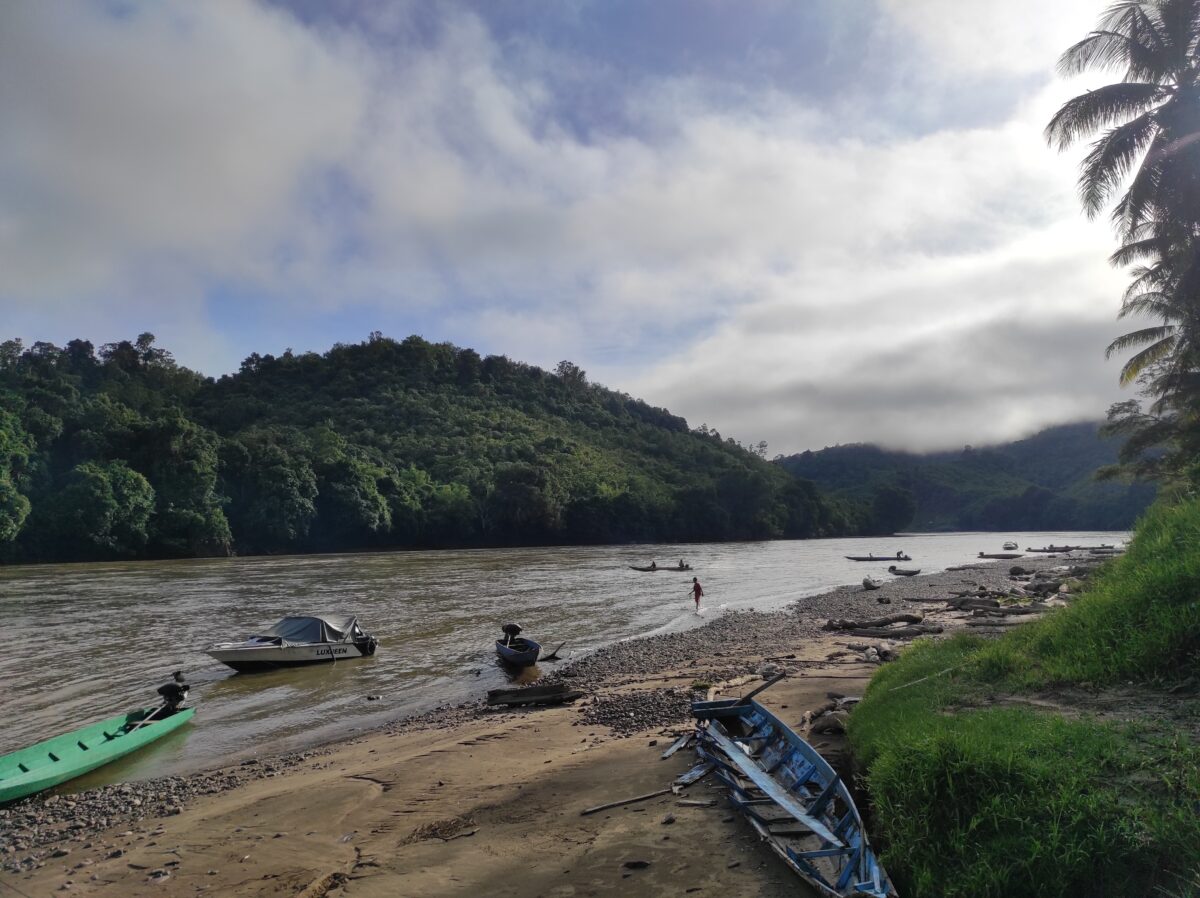
If you want to achieve anything, start with the local women
‘Because only then do environmental policies have a chance of succeeding,’ as Mela Chiponda from Zimbabwe and Jannah from Indonesia say – and they don’t say this lightly: when nature is violated, women are the first, and most affected. ‘They have the right to protect their land.’
‘Actually, it is very simple,’ says Jannah, an Indonesian human rights activist. She works for Just Associates and the Sustainable Forest Circle Association. ‘Women are closest to the natural environment, so they also want to protect it as much as possible.’ She explains further: ‘Globally, women often work in or around the house, for example in the kitchen, and that is directly connected to the natural environment.’ Is clean water available in the area, does the land provide enough food, and are they sufficiently protected against environmental disasters? These are all questions that concern women daily.
‘They carry out disproportionately many tasks and are always trying to ensure their family survives,’ Mela Chiponda, an ecofeminist and human rights defender from Zimbabwe, affirms. She saw it again recently when women were left homeless after a natural disaster. ‘They also took care of the elderly and people with disabilities. Their work may be invisible, but many people depend on them.’

So decisions about the environment, climate or living environment not only directly affect their lives, but also those of the people they care for. Yet, women are usually not involved, Jannah says. ‘If a mining company wants to claim land in an area, often, only men are heard.’ Development – no matter how well-intentioned – often excludes women, says Chiponda: ‘Women do not get a say, and they also structurally face marginalisation, exclusion, and violence. Development is unevenly distributed, which means they are harder hit by ecological and other crises.’
Comprehensive policy needed
Feminist foreign policy should therefore focus on climate change and the environment, Jannah believes. Women increasingly want to hold back development in their environment, Chiponda observes, because it often means agricultural land is taken away from them. ‘This means they can no longer grow anything.’ Another example is industrial food production: ‘Many pesticides end up in rivers, where indigenous women get their water.’
They usually don’t sound the alarm of their own accord. Jannah knows: ‘Sometimes we ask: “Do you know what will happen to the land that has been bought up?” All too often they reply, “No, that’s a matter for the men.” But those mining companies and plantations directly affect their lives. They have the right to protect their land.’ The Sustainable Forest Circle Association, therefore, provides training to women, both legally and to increase their self-confidence. ‘If they gain insight into what is going on and become involved in the policy in their village,’ says Jannah, ‘then they can influence the decisions.’
The organisation is also committed to social forestry, in which local people are closely involved in forest management, protection, and reforestation. ‘This requires local policy: which rules and methods do we apply, and how do we choose the people who monitor? We explain what social forestry entails and how it helps regain control of the forest. It is very important that women are involved from the start. This is because areas are often claimed by companies, who want to build a palm oil plantation, for example.’
Besides, Just Associates often struggles to find out which investors are behind it: ‘A lot of data is barely recorded,’ says Jannah. The organisation is therefore currently developing a method to map out stakeholders and the context. ‘We hope that foreign governments will financially support this effort.’
According to Chiponda, it is necessary to change power structures. This is because whether it concerns the distribution of land, climate policy, or the production of food or seeds, there is often a clear hierarchy – and the women who are directly affected by it are at the bottom of the ladder. ‘There can be enough for everyone,’ she says. ‘Subsistence agriculture can coexist with industrial agriculture; there is no need to take land away from the poor.’
‘Protect indigenous seeds so women can trade them among themselves. But for that to happen, unequal power structures must be addressed. We look for solutions not only from governments and companies but also from the population.’ If you want to achieve something at the government level, start with the local population, she advises. ‘We help indigenous groups get their needs clear: “What exactly don’t you want? What is your vision?” With their input, I can then sit down with the national government.’
As an example, she cites coal mine plans. ‘Good for employment, but it would cost three billion dollars, while Zimbabwe is already deeply in debt… Besides, why invest in coal when the whole world is crying out for renewable energy?’ Village women and indigenous groups protested: ‘Their land would be taken away – so where are they supposed to get their water from? After all, coal production requires a lot of water.’ The government eventually forwent the mine.
Protect the minorities
By giving local women a voice, feminist foreign policy can ‘protect their dignity and interests,’ says Chiponda. ‘So ask yourself: how do you work with women? How do you tackle unequal power structures, together with local and indigenous communities? How do you involve women, people with disabilities, and young people? We have already received support from the Dutch Ministry of Foreign Affairs to build a movement around climate justice and support for female human rights defenders. But my plea also applies to investors. Can the Dutch government ensure that Dutch companies looking to invest in Africa also protect women’s interests?’
Jannah calls the safety and mental health of female human rights activists crucial in the policy. Sometimes, we have to deal directly with the army, the government, or companies. They have more resources than we do. We are intimidated, chased away, and threatened. We have not yet been physically attacked, but this work is mentally taxing. When you build a movement, you challenge existing structures,’ Chiponda also knows.
‘As a result, you automatically put your life at risk. There is a need for a feminist foreign policy to make room for supporting and protecting minorities – not just women, but also the LGBTI community.’ Jannah also advocates for safe spaces, so human rights activists can recover mentally. And she points to the importance of capacity building.
‘Support for that would help us develop a strategy,’ she says, ‘not only for our internal organisation but also to build a movement and raise funds. We cannot do this work alone. We want to involve as many parties as possible and form a movement.’
*For security reasons, her name is fictitious.

Leave a Reply